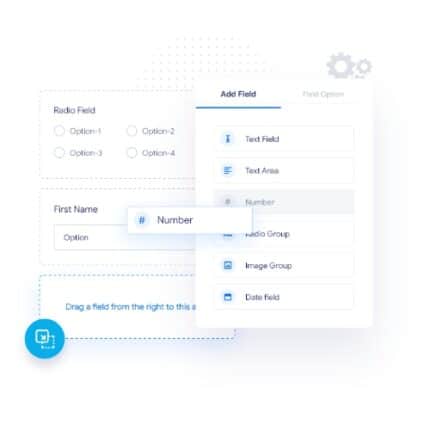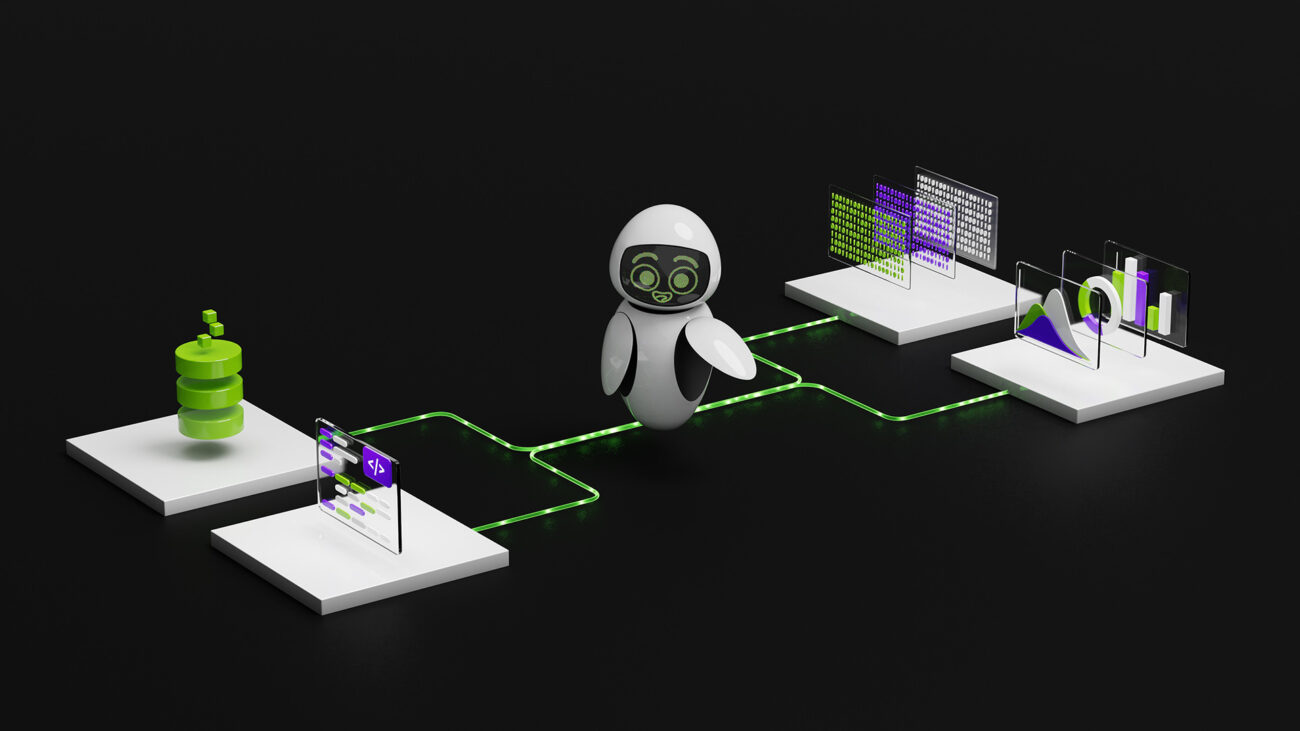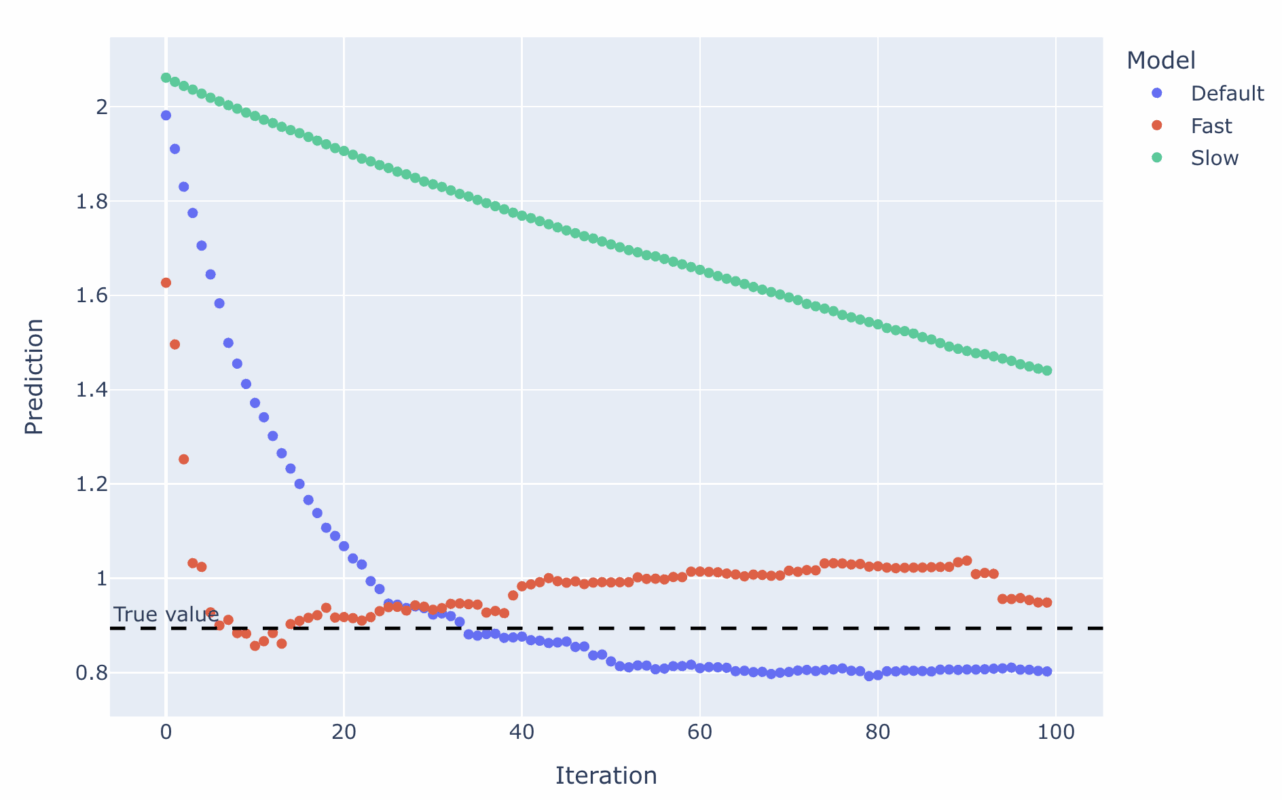Blog
Introduction
In the rapidly evolving landscape of technology, artificial intelligence (AI) is transforming how businesses operate. Organizations are eager to harness AI’s potential but often struggle with the transition from experimentation to real-world application. To effectively turn AI experiments into a competitive advantage, there are three essential components every organization should focus on: strategy, data, and talent.
Crafting a Strategic Vision
Understanding Your AI Goals
The first step in leveraging AI effectively is to establish a clear strategic vision. Organizations must identify specific business goals they aim to achieve through the deployment of AI technologies. Whether it’s enhancing customer experience, optimizing operational efficiency, or driving innovation, clear objectives will guide the direction of AI initiatives.
Aligning AI with Business Objectives
Once goals are set, it’s crucial to align AI initiatives with broader business strategies. This alignment ensures that AI projects contribute directly to the organization’s bottom line. Engaging stakeholders from various departments such as marketing, finance, and operations can provide insights into how AI can serve their needs and enhance overall performance.
Developing an AI Roadmap
With a clear vision and aligned objectives, organizations can create a structured roadmap for AI implementation. This roadmap should outline key milestones, resources needed, and timelines for achieving the set goals. A well-thought-out plan not only keeps teams focused but also facilitates tracking progress and adjusting strategies as needed.
Data: The Lifeblood of AI
Importance of Quality Data
Data is fundamental in the realm of AI. High-quality, relevant data enables machine learning algorithms to produce accurate predictions and insights. Organizations should prioritize data quality over quantity to ensure that the insights gleaned are reliable and actionable.
Data Collection and Management
Establishing efficient data collection methods is vital. Organizations should implement systems that not only gather data but also ensure its accuracy and integrity. This may involve using automated tools, data cleaning techniques, and regular audits of data sources.
Building a Data Governance Framework
A robust data governance framework helps in managing data effectively while ensuring compliance with regulations. By establishing clear policies on data usage, access, and sharing, organizations can foster a culture of trust around data. This framework will enable teams to utilize data confidently in their AI experiments.
Nurturing Talent for AI Success
Cultivating the Right Skill Sets
Equipping your workforce with the necessary skills for AI is critical. This includes not only technical expertise in machine learning and data science but also critical thinking and problem-solving capabilities. Training programs, workshops, and collaborative projects can help in developing these skills.
Fostering a Culture of Innovation
Creating an environment that encourages innovation is essential for successful AI implementation. Leaders should motivate teams to experiment and explore AI applications, fostering a culture where innovative ideas are valued and rewarded. This approach not only boosts employee morale but also enhances creative problem-solving.
Collaborating with AI Experts
Sometimes, bringing in external expertise can accelerate the learning curve. Collaborating with AI specialists or consultants can provide valuable insights and help organizations set realistic expectations for their AI projects. This collaboration can also supplement existing talent while offering different perspectives on implementation strategies.
Driving Continuous Improvement
Implementing Feedback Loops
Once AI systems are in place, establishing feedback loops is crucial for continuous improvement. Teams should regularly assess performance metrics and user feedback to identify areas for enhancement. This allows organizations to refine algorithms and processes continuously, adapting to changing business needs.
Staying Informed on AI Trends
The field of AI is constantly evolving. Staying informed about the latest trends, technologies, and best practices is essential for maintaining a competitive edge. Organizations should encourage ongoing education and participation in industry conferences and forums to keep pace with advancements.
Measuring Success and ROI
Establishing key performance indicators (KPIs) to measure the success of AI initiatives is essential. This could include metrics related to efficiency gains, customer satisfaction improvements, or revenue increases. Analyzing ROI from AI investments helps justify further expenditures and strategizes for future projects.
Conclusion
Transitioning from AI experiments to tangible advantages requires a cohesive approach that focuses on strategy, data, and talent. By crafting a clear strategic vision, prioritizing quality data management, and nurturing the right skills within their workforce, organizations can effectively leverage AI to advance their business goals. Additionally, driving continuous improvement and staying updated on industry trends will solidify their position in an increasingly competitive market. Embracing these three essential components will empower your organization to unlock the full potential of artificial intelligence.
Elementor Pro
In stock
PixelYourSite Pro
In stock
Rank Math Pro
In stock
Related posts
Build a Report Generator AI Agent with NVIDIA Nemotron on OpenRouter
Word Press Day-3 How to add the Slideshow images and Top Bar and Editing the Home Page #godigital
Oracle Shares Surge 36% on AI Demand, Adding $244B Market Value
Top 5 AI Plugins That Will Change WordPress in 2025! 🚀 #websitesetup #websitedomain
A Visual Guide to Tuning Gradient Boosted Trees
Here’s How I Built an MCP to Automate My Data Science Job
🔐Miss Genève 🌩️🌝🦅 ⚕️📿Wix and Word Press. Ads, Websites Developer. Marketers, Marketing experts,
AI Engine: o Melhor Plugin de Inteligência Artificial Grátis para WordPress – ChatGPT – OpenAI
AT&T Scales Back Office Surveillance After Employee Frustration
You Only Need 3 Things to Turn AI Experiments into AI Advantage
Gohighlevel’s mega menu feature breakdown in 3 minutes
Trump’s 2025 Bill Delivers $40B Boost to Fossil Fuel Industry
Products
-
 Rayzi : Live streaming, PK Battel, Multi Live, Voice Chat Room, Beauty Filter with Admin Panel
Rayzi : Live streaming, PK Battel, Multi Live, Voice Chat Room, Beauty Filter with Admin Panel
$98.40Original price was: $98.40.$34.44Current price is: $34.44.In stock
-
 Team Showcase – WordPress Plugin
Team Showcase – WordPress Plugin
$53.71Original price was: $53.71.$4.02Current price is: $4.02.In stock
-
 ChatBot for WooCommerce – Retargeting, Exit Intent, Abandoned Cart, Facebook Live Chat – WoowBot
ChatBot for WooCommerce – Retargeting, Exit Intent, Abandoned Cart, Facebook Live Chat – WoowBot
$53.71Original price was: $53.71.$4.02Current price is: $4.02.In stock
-
 FOX – Currency Switcher Professional for WooCommerce
FOX – Currency Switcher Professional for WooCommerce
$41.00Original price was: $41.00.$4.02Current price is: $4.02.In stock
-
 WooCommerce Attach Me!
WooCommerce Attach Me!
$41.00Original price was: $41.00.$4.02Current price is: $4.02.In stock
-
 Magic Post Thumbnail Pro
Magic Post Thumbnail Pro
$53.71Original price was: $53.71.$3.69Current price is: $3.69.In stock
-
 Bus Ticket Booking with Seat Reservation PRO
Bus Ticket Booking with Seat Reservation PRO
$53.71Original price was: $53.71.$4.02Current price is: $4.02.In stock
-
 GiveWP + Addons
GiveWP + Addons
$53.71Original price was: $53.71.$3.85Current price is: $3.85.In stock
-
 ACF Views Pro
ACF Views Pro
$62.73Original price was: $62.73.$3.94Current price is: $3.94.In stock
-
 Kadence Theme Pro
Kadence Theme Pro
$53.71Original price was: $53.71.$3.69Current price is: $3.69.In stock
-
 LoginPress Pro
LoginPress Pro
$53.71Original price was: $53.71.$4.02Current price is: $4.02.In stock
-
 ElementsKit – Addons for Elementor
ElementsKit – Addons for Elementor
$53.71Original price was: $53.71.$4.02Current price is: $4.02.In stock
-
 CartBounty Pro – Save and recover abandoned carts for WooCommerce
CartBounty Pro – Save and recover abandoned carts for WooCommerce
$53.71Original price was: $53.71.$3.94Current price is: $3.94.In stock
-
 Checkout Field Editor and Manager for WooCommerce Pro
Checkout Field Editor and Manager for WooCommerce Pro
$53.71Original price was: $53.71.$3.94Current price is: $3.94.In stock
-
 Social Auto Poster
Social Auto Poster
$53.71Original price was: $53.71.$3.94Current price is: $3.94.In stock
-
 Vitepos Pro
Vitepos Pro
$53.71Original price was: $53.71.$12.30Current price is: $12.30.In stock
-
 Digits : WordPress Mobile Number Signup and Login
Digits : WordPress Mobile Number Signup and Login
$53.71Original price was: $53.71.$3.94Current price is: $3.94.In stock
-
 BookingPress Pro – Appointment Booking plugin
BookingPress Pro – Appointment Booking plugin
$53.71Original price was: $53.71.$3.94Current price is: $3.94.In stock
-
 Polylang Pro
Polylang Pro
$53.71Original price was: $53.71.$3.94Current price is: $3.94.In stock
-
 All-in-One WP Migration Unlimited Extension
All-in-One WP Migration Unlimited Extension
$53.71Original price was: $53.71.$3.94Current price is: $3.94.In stock
-
 Slider Revolution Responsive WordPress Plugin
Slider Revolution Responsive WordPress Plugin
$53.71Original price was: $53.71.$4.51Current price is: $4.51.In stock
-
 Advanced Custom Fields (ACF) Pro
Advanced Custom Fields (ACF) Pro
$53.71Original price was: $53.71.$3.94Current price is: $3.94.In stock
-
 Gillion | Multi-Concept Blog/Magazine & Shop WordPress AMP Theme
Rated 4.60 out of 5
Gillion | Multi-Concept Blog/Magazine & Shop WordPress AMP Theme
Rated 4.60 out of 5$53.71Original price was: $53.71.$5.00Current price is: $5.00.In stock
-
 Eidmart | Digital Marketplace WordPress Theme
Rated 4.70 out of 5
Eidmart | Digital Marketplace WordPress Theme
Rated 4.70 out of 5$53.71Original price was: $53.71.$5.00Current price is: $5.00.In stock
-
 Phox - Hosting WordPress & WHMCS Theme
Rated 4.89 out of 5
Phox - Hosting WordPress & WHMCS Theme
Rated 4.89 out of 5$53.71Original price was: $53.71.$5.17Current price is: $5.17.In stock
-
 Cuinare - Multivendor Restaurant WordPress Theme
Rated 4.14 out of 5
Cuinare - Multivendor Restaurant WordPress Theme
Rated 4.14 out of 5$53.71Original price was: $53.71.$5.17Current price is: $5.17.In stock
-
 Eikra - Education WordPress Theme
Rated 4.60 out of 5
Eikra - Education WordPress Theme
Rated 4.60 out of 5$62.73Original price was: $62.73.$5.08Current price is: $5.08.In stock
-
 Tripgo - Tour Booking WordPress Theme
Rated 5.00 out of 5
Tripgo - Tour Booking WordPress Theme
Rated 5.00 out of 5$53.71Original price was: $53.71.$4.76Current price is: $4.76.In stock
-
 Subhan - Personal Portfolio/CV WordPress Theme
Rated 4.89 out of 5
Subhan - Personal Portfolio/CV WordPress Theme
Rated 4.89 out of 5$53.71Original price was: $53.71.$4.76Current price is: $4.76.In stock
-
 Bloxic - Furniture Store WooCommerce Theme
Rated 4.83 out of 5
Bloxic - Furniture Store WooCommerce Theme
Rated 4.83 out of 5$53.71Original price was: $53.71.$4.76Current price is: $4.76.In stock

















